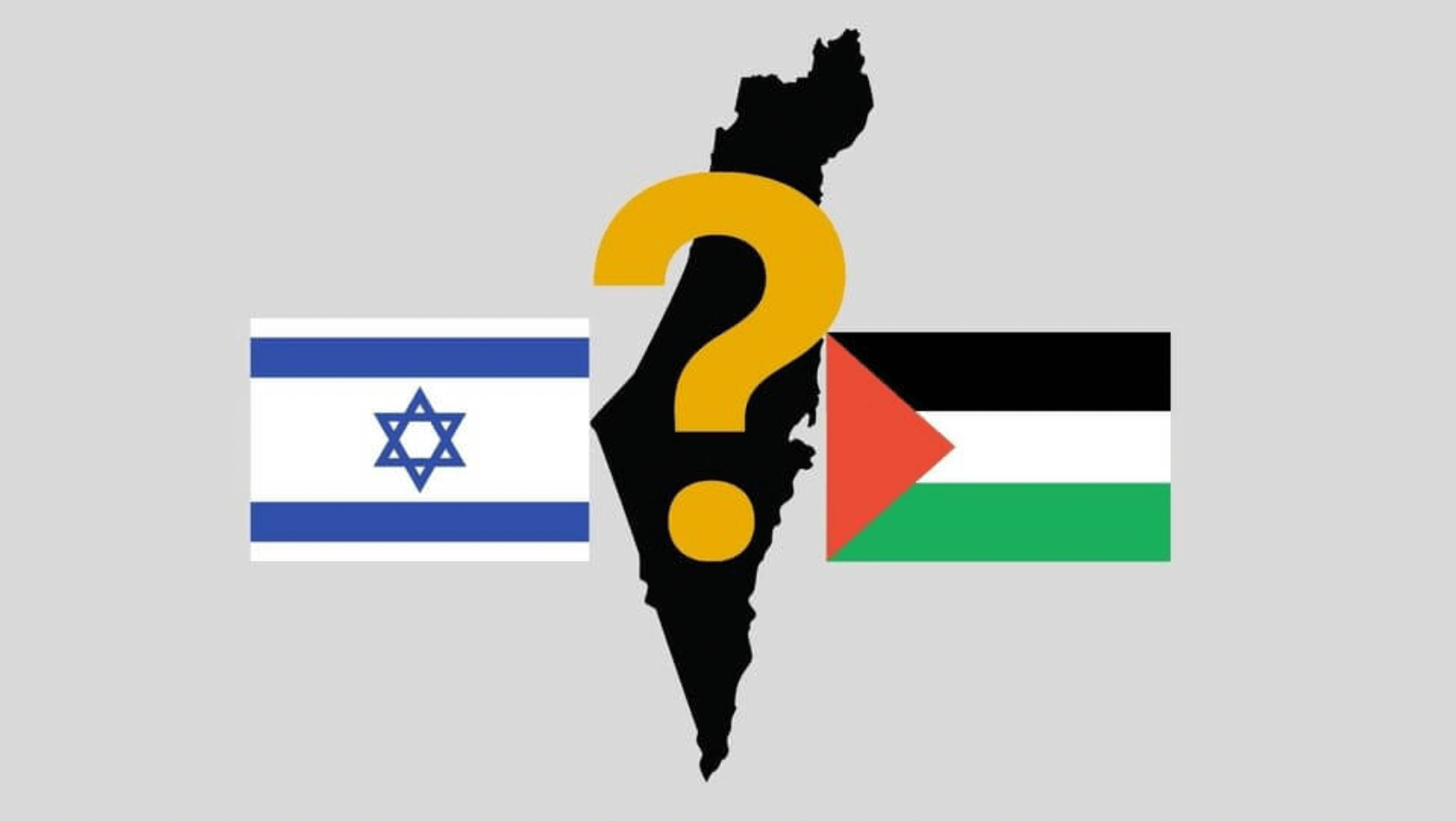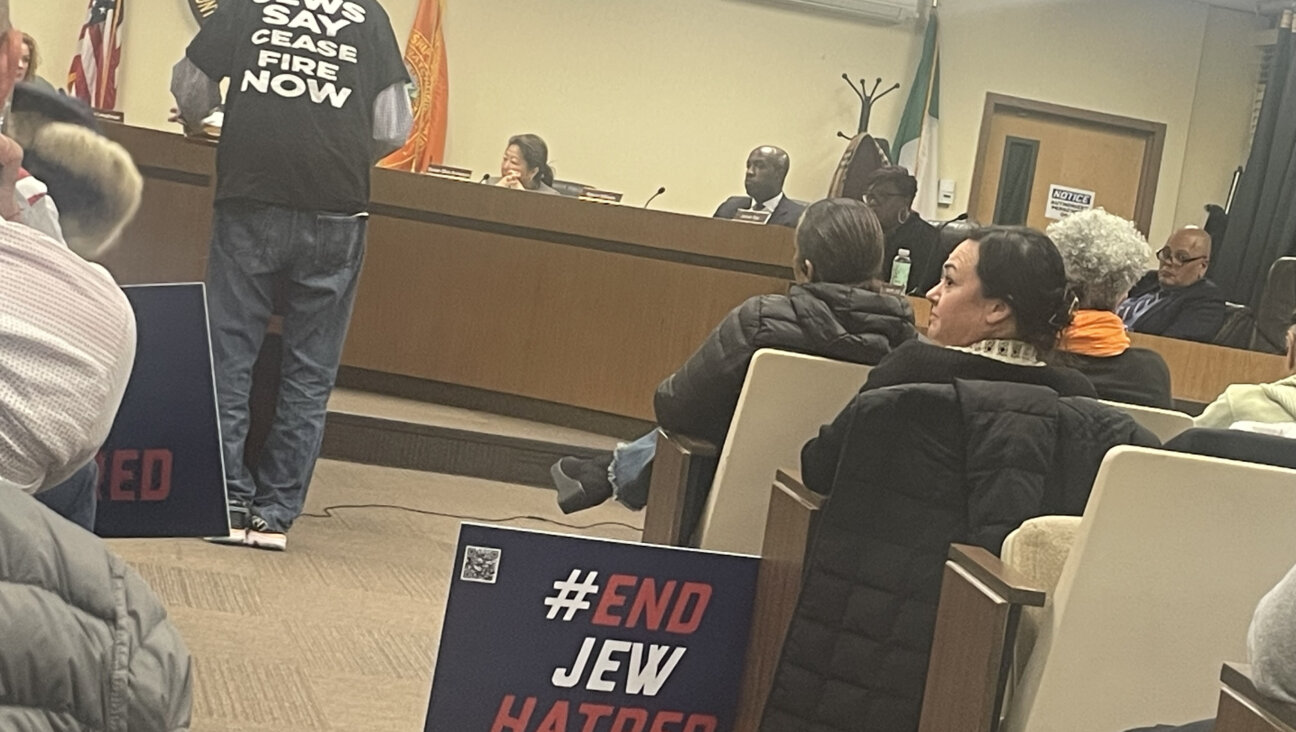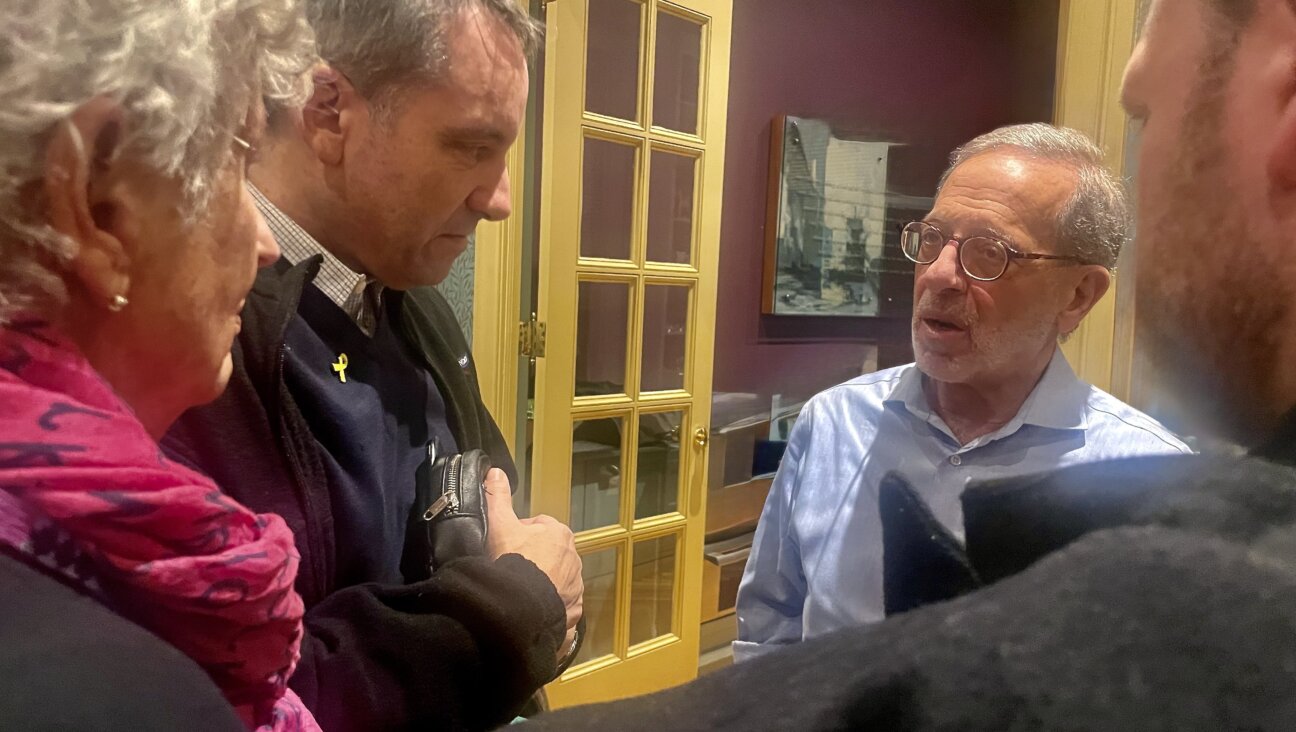At breakfast on Sunday, even before we knew the horrific details and full scale of Hamas’ horrific assault on Israel, Rabbi Yael Buechler’s kindergartner asked, “Does God like the people who are throwing rockets into Israel?”
A member of the Jewish Student Union at Montclair High School in New Jersey, where my twins are juniors, wondered a few days later: “How do I help inform my friends and family, Jewish or not, in a way that isn’t harmful to anyone?”
And in the middle of this torturous, terrifying week, a 16-year-old from Sterling, Virginia, named Avery emailed me to share that “both Arabs and non-Arabs have been saying really awful things about me and to me.”
“What do I say to people who are saying all these antisemitic things?” she asked. “Can I ask the school to acknowledge the harassment, or do they have to be neutral so they don’t look like they’re picking a side? And, most importantly: What do you think is gonna wind up happening in Israel? What will the effect be here?”
Avery, nobody knows what’s going to wind up happening. But I’m really glad you asked. As I wrote in an essay in thenew anthology Jewish Priorities, asking great questions is not only the backbone of journalism, it is the beating heart of Judaism. And in our increasingly chaotic world, as we try to understand this hopelessly complicated conflict, during this confusing, emotional onslaught, coming at things from a place of curiosity has never been more crucial.
So, as I did two years ago during the last, much smaller, Israel-Gaza conflagration, I collected a bunch of questions from kids (and a few from their parents) this week. Here are some answers — note that this is tough stuff to read for people of any age.
What is Hamas exactly and are they, as they claim, the Palestinian resistance to Israeli occupation? What is their desired outcome?
Hamas is a Islamist militant political movement founded in 1987, an offshoot of Egypt’s Muslim Brotherhood. It is also a terrorist organization, classified as such by the U.S. State Department since 1997. Its military wing, which carried out the brutal terror attack last weekend, killing some 1,200 Israelis and kidnapping perhaps 150, is called Al Qassam Brigades. They are backed by Iran.
Palestinians do see Hamas as part of their resistance against Israeli occupation. But it is a resistance movement rooted in violence and terror. And it defines the occupation inaccurately. Under international law, Israel is occupying the West Bank, territory it seized during the 1967 War. But Hamas defines all the land between the Jordan River and the Mediterranean Sea as Palestine and thus considers Israel proper — the Jewish and democratic state declared in 1948 and sanctioned under the United Nations partition plan before that — as occupied territory, which it is not.
Sadly, according to Hamas’ own charter, which is rife with antisemitic tropes, their desired outcome is to wipe Israel off the map — and kill Jews. It includes a hadith, a saying from the Prophet Muhammad: “The Day of Judgment will not come about until Muslims fight Jews and kill them. Then, the Jews will hide behind rocks and trees, and the rocks and trees will cry out: ‘O Moslem, there is a Jew hiding behind me, come and kill him.’”
How many people are in Hamas? Why can’t they just get rid of those people?
It’s hard to say how many people are in Hamas, because there aren’t membership cards. I mentioned that Hamas is a political party as well as a terrorist group. Hamas won the last Palestinian legislative elections — but that was back in 2006! There have not been elections since then because of the deep dysfunction in Palestinian politics, and there is not a functioning legislature that plays a meaningful role in Gaza or the West Bank.
Hamas has essentially ruled Gaza since a bloody battle with its political rival, Fatah, in 2007. That means Gaza’s 2 million Palestinian residents, who are mostly desperately poor, rely heavily on Hamas for their basic needs. And Hamas is an oppressive political force, cracking down on feminism and free speech, policing strict adherence to Islamic law, and sometimes torturing Palestinians seen as traitors.
The latest poll from the Palestinian Center for Policy and Survey Research, in September, found that most Palestinians would not participate if there were elections now, a sign of the deep political dysfunction. Of the 46% who said they would vote, most — 56% overall and 65% of those who live in Gaza — said they’d vote for the leader of Hamas, Ismail Haniyeh, rather than the current Palestinian president, Mahmoud Abbas of Fatah, who is wildly unpopular. If there were legislative elections, the poll showed, Hamas and Fatah would get 34% and 31% of the votes.
Frighteningly, the poll showed that 71% of Palestinians, and 79% of those living in Gaza, supported armed groups (versus non-violent resistance). And after past violent flareups with Israel, like in 2021, support for Hamas has generally grown. There are dissenters in Gaza who despise Hamas and its terror tactics, but they are mostly too terrified to speak out.
Israel has, over the years and in this latest round of fighting, assassinated many Hamas leaders and Qassam commanders. But experts estimate that there are 30,000 armed and trained Hamas fighters in Gaza, so rooting all of them out, especially in Gaza’s intensely crowded, urban terrain and given the network of underground tunnels Hamas maintains, is exceedingly difficult.
Why would someone start a war on a holiday?
Actually, a lot of battles have historically been fought on holidays. One of the most notorious is the Yom Kippur War, when Egypt and Syria attacked Israel on the holiest day of the Jewish calendar. This Hamas attack, which hit Israel 50 years and one day after that Yom Kippur invasion, came during the Jewish festival of Simchat Torah, normally one of the most joyful days of our year.
I suppose these terrorists thought the timing would be an advantage because Israelis would be distracted by their holiday celebrations. The all-night dance party in the desert where Hamas killed 200-plus revelers and kidnapped others was one of those celebrations.
Was Israel attacked so heavily just now because they are having political issues, or was it for another reason?
Israel has been convulsed by political protests all year over its right-wing government’s plan to overhaul the judiciary, restricting the Supreme Court’s powers in ways that many — including me — see as undermining its democratic infrastructure. More than 100,000 pro-democracy protesters filled the streets every Saturday night for 40 weeks. The society is deeply, deeply divided.
I cannot say for sure that Hamas timed its attack because of the political division. But it seems clear that the political division was part of what fueled the intelligence failures that left Israel so vulnerable.
At what age do people get drafted into the Israel Defense Forces? How long do they serve and how do they pick what they do? How old are people who serve in the reserves?
Most Israelis go into the army after high school, at age 18, though some first do a year-long leadership program called mechina — Hebrew for preparation — that includes study and service. Men serve a minimum of 30 months (reduced in 2020 from 32, and from 36 before that) and most women two years. Haredi Jews are generally exempt from the draft, and many modern Orthodox women — as well as some non-Jewish citizens, and a handful of conscientious objectors — do civilian national service instead of the army.
The process for determining which unit individual soldiers serve in is complex. From a very young age, a lot of Israeli Jewish kids dream of being in the prestigious Golani infantry brigade or the elite paratroopers or the secretive 8200 intelligence corps. How it works itself out is a mix of physical, intellectual and psychological tests — it can be as competitive and mysterious as the Ivy League college admissions process!
Reserve duty, or miluim in Hebrew, is required for most men until age 40, and women in non-combat units until they give birth to a child. But most people are not called for miluim every year. In times of crisis like this, many people over age 40 also volunteer for reserve duty. Israel’s current mobilization of 360,000 reservists is the largest since the Yom Kippur War in 1973.
Israel told the United Nations last night that 1.1 million residents of northern Gaza should relocate for their own safety. What will happen since they have nowhere to go? Does Gaza have any allies/countries that can help?
Some people in Gaza have begun to pack and move south, but the U.N. has warned that such a mass evacuation would create a humanitarian disaster. The southern part of the Gaza Strip has weaker infrastructure and resources. Roads have also already been damaged in the war.
Egypt sits on Gaza’s southern border, and theoretically could open its crossing and take in the people of Gaza, but that has never happened before. In the last couple of days, Egypt has asked Israel to stop bombing the crossing, called Rafah, so it can be used to ferry aid from the Red Cross and others. The United States has talked to Egypt about using the crossing as an exit route for non-Palestinians who are stuck inside Gaza right now.
Gaza is not a country, so it’s not quite right to think of it having “allies.” But Qatar has in the past provided a lot of money to Gaza and tried to help keep the place functioning. The Arab world always talks about supporting Palestinians but has not ever taken major steps like rescuing these huge numbers of people from the risks of airstrikes or a possible ground invasion.
Why are they taking hostages?
Some 150 people, mostly Israeli Jews but also some U.S. citizens and people from Thailand, France and other places, are believed to have been abducted by Hamas or another terrorist group, Islamic Jihad, during Saturday’s attacks. There are both soldiers and civilians, some grandparents and even some little kids. We do not know where exactly they are, or even how many of them are still alive. One of the most horrible parts of this week is imagining what they are going through.
This is unprecedented in its scale. But hostage-taking is a common tactic for terrorists, including Hamas. They use hostages as negotiation tools. And Israel takes the rescue of hostages very, very seriously.
In 2006, Hamas kidnapped an Israeli soldier named Gilad Shalit. He was held for five years, and became a focal point of Israeli politics, military and culture. In 2011, Israel negotiated his release in exchange for more than 1,000 Palestinians being held in Israeli jails. So you can imagine what the “price” might be for 150 hostages.
On Monday, Hamas threatened to kill one Israeli hostage and stream it on video, in response to each Israeli airstrike in Gaza that killed civilians. That has, thankfully, not happened so far. Having so many hostages believed held inside Gaza also complicates Israel’s challenge to prosecute the war. Every Israeli’s worst nightmare is imagining the hostages being killed by their own country’s bombs.
Do terrorist attacks invalidate Palestinian activists? How does that work?
I don’t think so. It is perfectly possible, and reasonable, to work for Palestinian sovereignty and advocate for Palestinian human rights, and to condemn terrorism at the same time.
There is something of a crisis going on right now among pro-Palestinian activists, especially those who are Jewish or work closely with Jewish groups, over the response to Saturday’s attacks. Some Palestinian activists celebrated the attacks and said they were the inevitable result of Israel’s policy toward Gaza. Many Jews on the left feel shocked and betrayed by that response, and believe that all terrorism should be condemned outright.
It has gotten much harder, this week, to advocate clearly both for an Israel that is Jewish, democratic and safe and for Palestinians to live freely in their own state. But I continue to think that is both the right thing, morally, and the only possible way to resolve this horrible, dehumanizing, hopeless conflict.
How can this end if it’s just sheer violence against each other?
Nobody knows. When I think about “how can this end” I think also about the beginning. This conflict did not start in 2008, when Israel first invaded Gaza in response to the barrages of rockets Hamas fired into civilian areas. It did not start in 1967, when Israel seized Gaza — which had been under Egyptian occupation — along with the West Bank, which had been occupied by Jordan. It did not start with the founding of the modern state of Israel in 1948.
Maybe it goes back all the way to the Bible: “Abraham had two sons. There was Isaac, and there was Ishmael.” Jews trace their lineage from Isaac, Muslims from Ishmael.
Jews and Arabs both trace their history in the holy land back generations, centuries, and are deeply, spiritually, emotionally attached to that land. There have been violent clashes over that land, too, for a long, long time — like the 1929 Hebron massacre in which Arabs killed more than 60 Jews, and ransacked their homes and synagogues.
The conflict is not “just sheer violence,” however. It is a political conflict, a cultural conflict, a conflict between two narratives that are both deeply enmeshed in people’s identities and senses of self. We all hope the violence ends. But it won’t until the full conflict is addressed.






























